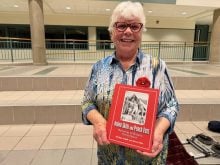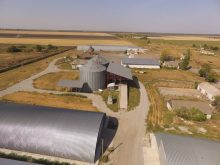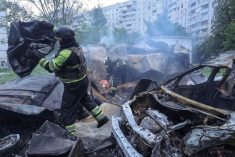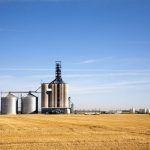Yuriy Zayikin has had a front row seat to the war in Ukraine. And at times he’s been forced onto the stage.
He farms in the southern Kherson region. At one point 95 per cent of the area was occupied by invading Russian forces. Just five per cent remained under control of Ukraine, which is where Zayikin was ‘lucky’ enough to find himself.
The Russian forces were massed less that 20 kilometres away, where they mocked and abused the local population that did fall under their control.
Read Also
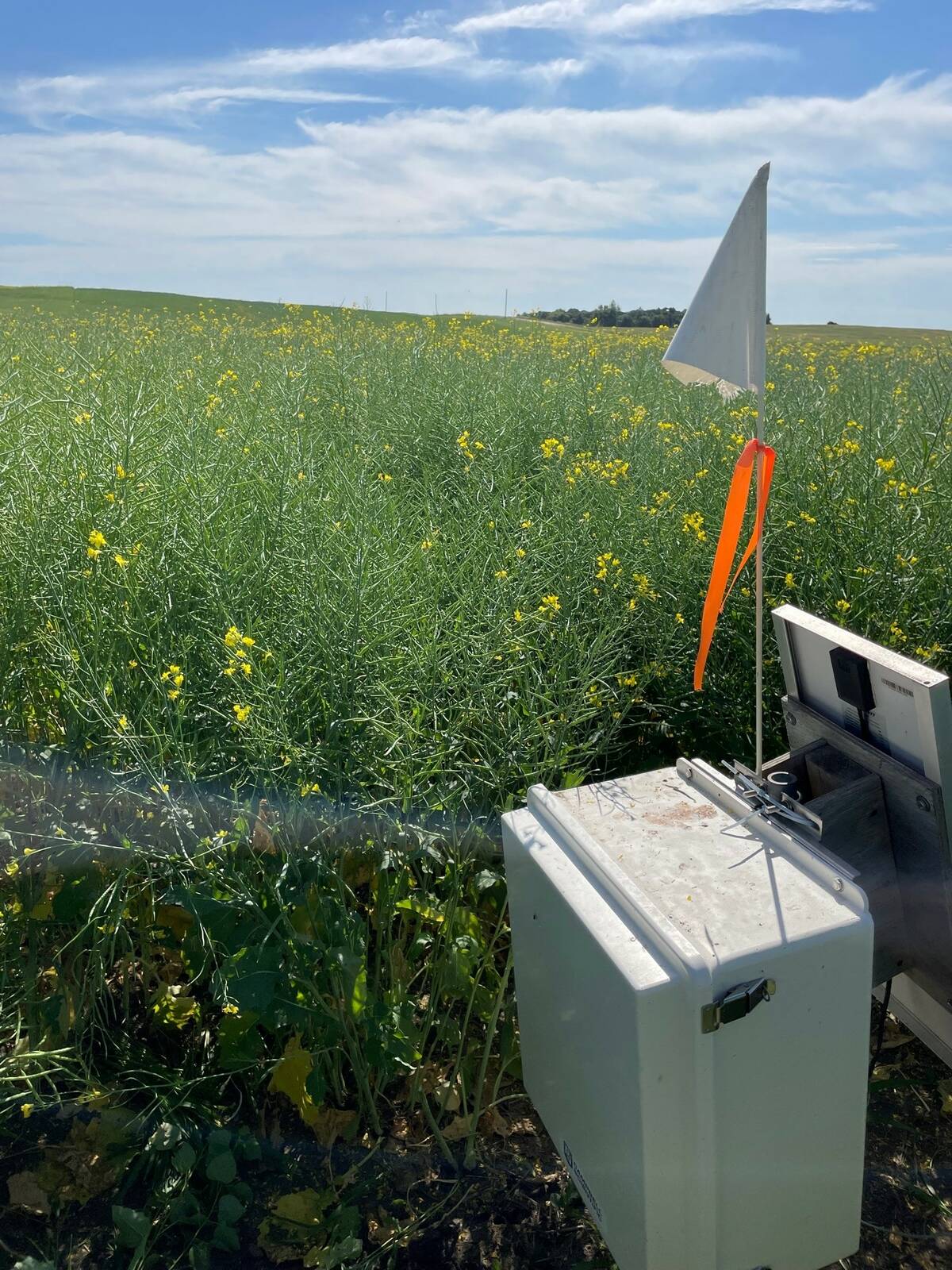
Where’s the water? RISMA knows
National soil moisture sensor network gives real-time data for Manitoba farmers fighting more frequent drought or flood.
Had the Ukrainian army not halted its advance, Zayikin knows he would have personally experienced all the horrors of the occupation. In that way, he celebrates his good fortune.
But the word “lucky” is probably not appropriate. Enemy missiles hit his farm, and the current financial situation does not encourage optimism.
Before the war
Ukrainian agriculture has modernized rapidly in recent years as farms have consolidated and equipment grew in size. Zayikin’s farm was no exception. Before the war it had grown to 2,500 acres, producing winter wheat, barley, rapeseed, sunflowers and peas.

Farming in the region is “like a lottery” he says, because of regular droughts. Zayikin says that’s made for some tough years, but overall, the farm grew and succeeded. He considered his farm the equal of any in the region with its modern technology and productivity.
Some years saw a profit, other years losses, but through his and his employees’ hard work, the farm stood firmly on its feet.
“We purchased modern tractors, combines and even a self-propelled sprayer,” he said. “I never thought that we would have to repair our agricultural machinery after rocket attacks.”
They did know that protecting equipment would be key to business survival after the war.
“They had to be hidden somewhere,” Zayikin said about farm equipment items. “Unfortunately, all our warehouses were filled with unsold grain. That’s why we distributed tractors and harvesters to our workers, who disguised them near their houses.”
Then came the challenge of financing a farm during the war. It was impossible to sell the grain that filled the farm’s warehouses. And while the bank account wasn’t quite running on fumes, it wasn’t enough to make the necessary payments.
Somehow Zayikin kept the ship afloat until July, when it was finally possible to sell grain, albeit at a meagre price.

He says small farmers were offered a pittance, maybe US$50 or $60 for a tonne of wheat. Larger farmers like his got more, but still at a steep discount. His price at port was $160, for which he had the challenge of moving the grain.
“I don’t understand why farmers from other countries sell wheat for $400 a ton and I get less than $150,” he said. “Yes, I agree to give a discount for logistics, for risk, but the difference cannot be almost three times. I have no doubts that the big grain traders conspired and are profiting from the misfortune of Ukrainians.”
Similarly, the prices of fertilizers and fuel are inflated, even though natural gas prices have fallen.
“Mineral fertilizers have turned into a real luxury for us,” said Zayikin. “There are people who seek to profit from the war and this is very bad.”
Picking a side
Zayikin said it was also important that the farm help the Ukrainian war effort.
“Soldiers lived in our village, we fed them, created conditions so that they could wash and rest,” he said. “I also voluntarily provided my workshops and stock of spare parts for the full use of the army. After all, every day they needed something: a wheel, a bearing, a bolt or some kind of repair. We all understood how important it is to help our army.”

Farm work was further complicated when there was no electricity for almost a year. The farmer solved the problem by purchasing a fairly large solar power plant. This device saved them, and also aided Ukrainian forces.
“We were just wrapped up with different wires and chargers,” he said. “Everyone brought us phones and laptops. Thanks to this, we had a more or less normal connection and could work.”
The active assistance of farmers to the Ukrainian army did not go unnoticed by the occupiers. Just in time for the Ukrainian national religious holiday of Intercession, celebrated Oct. 14, a rocket flew to Zayikin’s farm.
“We were just having lunch with the military when we heard a terrible roar and saw that the plaster was falling in the house,” he said. “As it turned out, three rockets flew into our village at once. One hit our hangar with agricultural machinery, the second also hit a hangar on our neighbour’s farm.
“The third farmer was more fortunate because the rocket missed by several metres. A few days later, two more rockets arrived.”
As a result, new tractors and trucks burned, and combines and a sprayer were cut and mangled by debris. Miraculously, no one was hurt.
“It is obvious that the enemy shot precisely at the farmers in order to intimidate us and prevent us from helping the army,” he said. “To be honest, some days I went to sleep wondering if I would be able to wake up in the morning. After all, the Russians could know where my house is, so they could have aimed the missile right here.”

Harvesting last summer’s crop was an important task. The existence of the farm depended on it.
“I remember it now like a terrible dream,” Zayikin said. “We are on the field together with harvesters and firefighters, just in case. And then a rocket arrives 200 metres from the fire truck.
“Firefighters start running in different directions, followed by our combine harvesters. I run after them and persuade them to return, because the harvest needs to be harvested no matter what.”
This task was completed as Zayikin worked in the field with his employees, sharing all the risks.
“I had the opportunity to flee abroad in the first days of the war or to the western part of Ukraine,” he said. “But then what kind of person am I and how could I look my countrymen in the eye? I live here and will live here no matter what.”

Liberation
In November, the famous offensive of the Ukrainian army on Kherson and the liberation of the right bank of the Dnieper river took place. With that, the front line moved further from Zayikin’s farm.
“The first thing I did was go to my mother-in-law’s village, which was under occupation,” he said. “We brought food and other necessary things there. People were saying horrible things about what the Russians were doing.
“You understand that when a person with criminal tendencies gets a weapon and feels his impunity, he turns into a real maniac. Among Russian soldiers there is a certain percentage of such people, as in any society. And the worst thing is that they got the opportunity to satisfy their instincts.”
After the front line moved beyond the river, Zayikin started to revive his business.
“We worked last summer, even when there was a threat of shelling,” he said. “We cultivated approximately 70 per cent of our fields. The other 30 per cent of the area was under the gun sights of the Russians, so if we had driven a tractor into the field, it would have been destroyed immediately. Now we have a lot of trouble with the restoration of these fields.”
Recovery
After a year with no tending, fields are choked with problem weeds and will be difficult to manage. But the biggest problem is the mines and remnants of rockets scattered over the fields, as well as deep pits from explosives.

“We walk with metal detectors and try to clear the fields by ourselves,” Zayikin said. “If we see something suspicious, we call sappers. We also adapted our bulldozer for fill pits. It walks through the fields like a tank.”
Nevertheless, Zayikin looks to the future with optimism.
“You know, in the city, lying on a soft sofa, a person can afford to be depressed and do nothing,” he said. “It won’t work like that in the village. We don’t stop working in the fields. Every farmer and farm worker has a lot of troubles every day. That’s why we should never cry. We need to work.”





